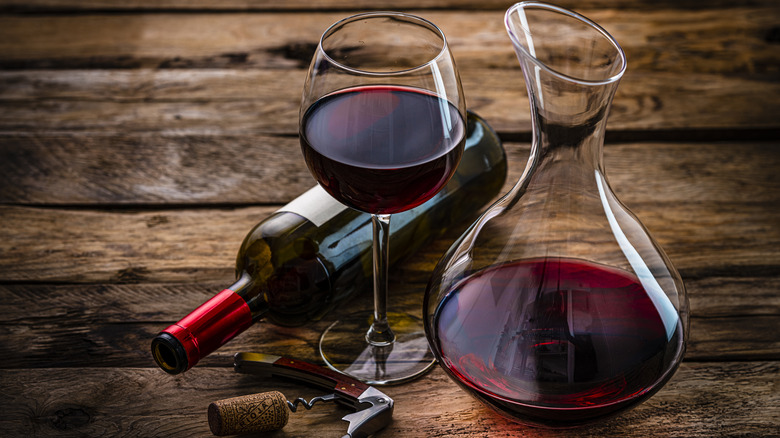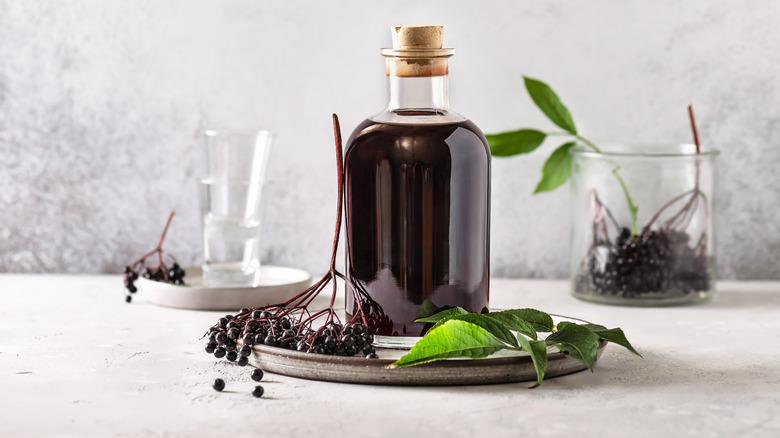The Fruit Wine That Tastes Closest To The Classic Grape Varieties
The territory of fruit wines (wine made from any fruit other than grapes) can get a little, shall we say, unencumbered in a bad way. Without insinuating any unsavory elitism, the line between "strawberry guava Moscato" and syrupy punch bowl crush often blurs. It can sometimes be hard to spy any "wine" in a bottle of super-sweet passion fruit rosé. That's where elderberry wine comes in.
If you think elderberries are an "uncool" fruit reserved for pies that nobody eats, you've got it all wrong. This is the perspective of someone who has never properly met an elderberry before. It's all about perspective — and if you aren't familiar with the fruit (and there's a sporting chance you aren't), elderberries are the darling of the fruit wine world.
Elderberries produce a wine widely comparable in flavor, mouthfeel, and body to regular grape-based wine. It features not-to-be-dismissed tannins, medium acidity, a dark red-to-black hue, and a dry flavor comparable to good, grape-made wines. The berry sweetness of elderberry wine is made dimensional by crisp acidity, and sometimes the wine is aged in oak barrels for stronger character.
Respect your elderberries
Historically, the wine is an agricultural product of pastoral communities produced by individual households, sometimes fortified with brandy to extend its shelf life. The berries grow from Britain into east Asia and as far south as North Africa and can be found in the U.S. as well. The two elderberries most commonly used for winemaking are European elderberry and American elderberry, although varieties like the Western blue Sambucus mexicana and Eastern blue S. nigra also make good wine. Elderberry wine may be "fruity," but it is neither "bright" nor "cheerful." It's dark, piquant, sweet-tart, slightly floral, and a tad bitter. The profile resembles sweet Zinfandel, low-alc port, and Cabernet Franc icewine. (Wine dilettantes can check out our guide on every major type of red wine or our guide on ports.)
Sadly, you're unlikely to find a bottle of elderberry wine in your local liquor store, as the berries don't grow in abundant enough crops to make it commercially profitable for winemakers. The most widely available brand, Manischewitz ($8.49 via Total Wine), is made from concord grapes and flavored with elderberry liqueur. If you want to taste true elderberry wine for yourself, swing by your local farmers market around harvesting season: from July to early October.
Alternatively, you can try your hand at homebrewing and forage some elderberries yourself — while you're at it, keep an eye out for other edible plants to forage. Just steer clear of red elderberries, which are toxic. To make elderberry wine, simmer the berries, strain the pulp out, infuse the mixture with yeast, sugar, and sometimes spices like cloves and ginger, then age it, either in the bottle or in barrels.

